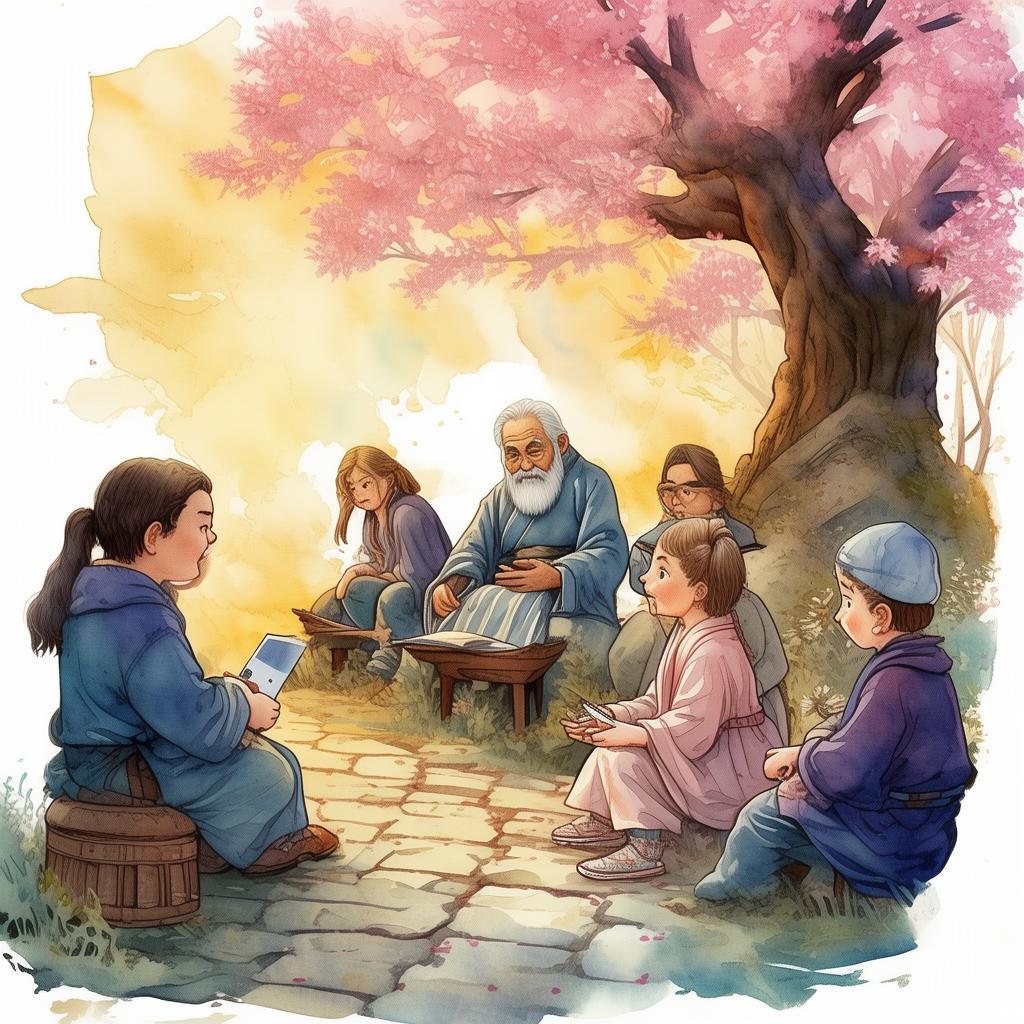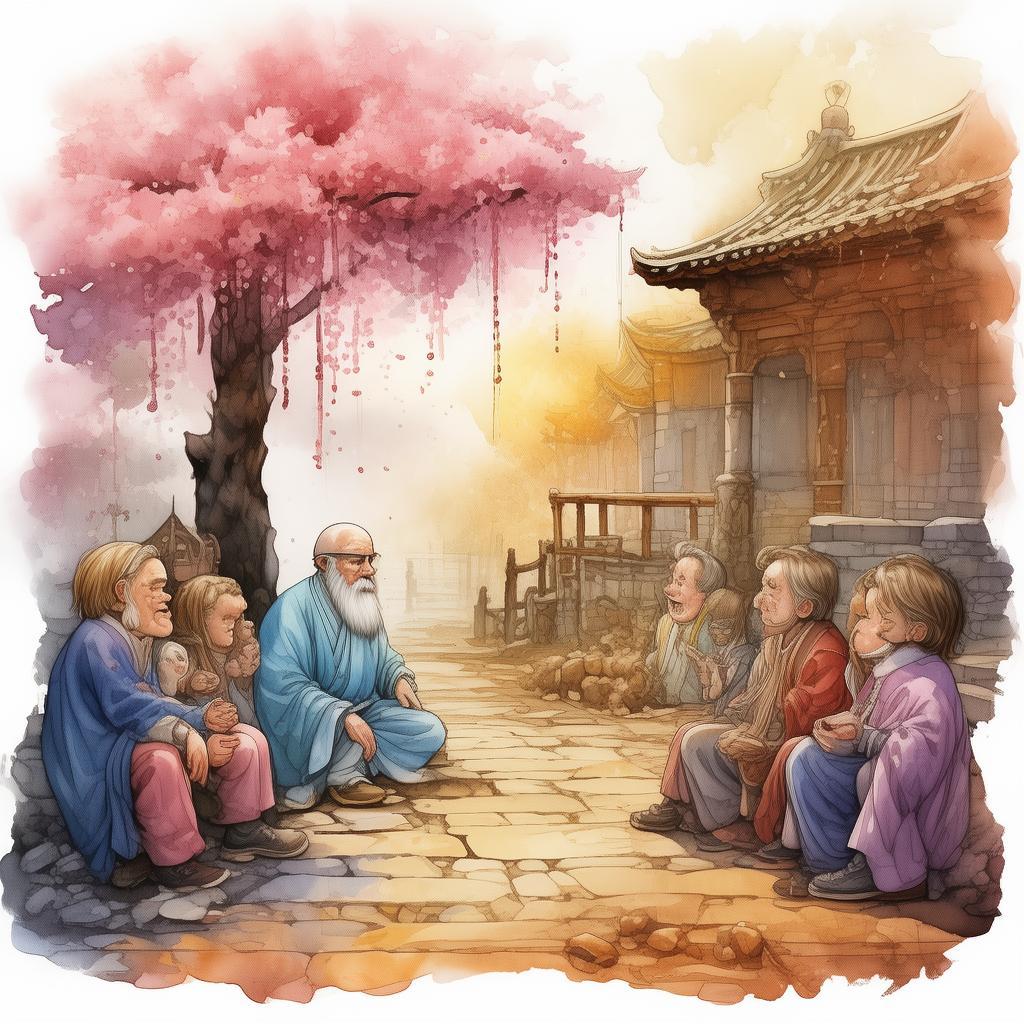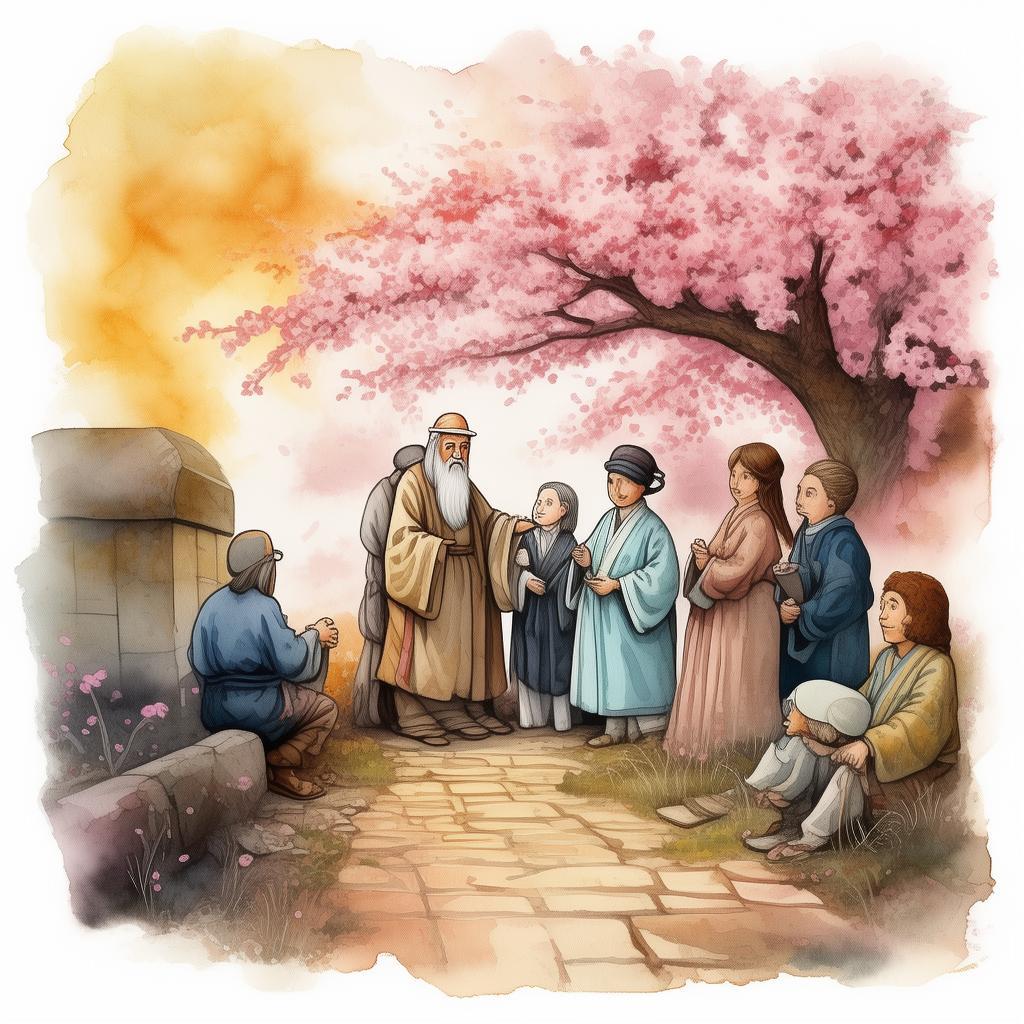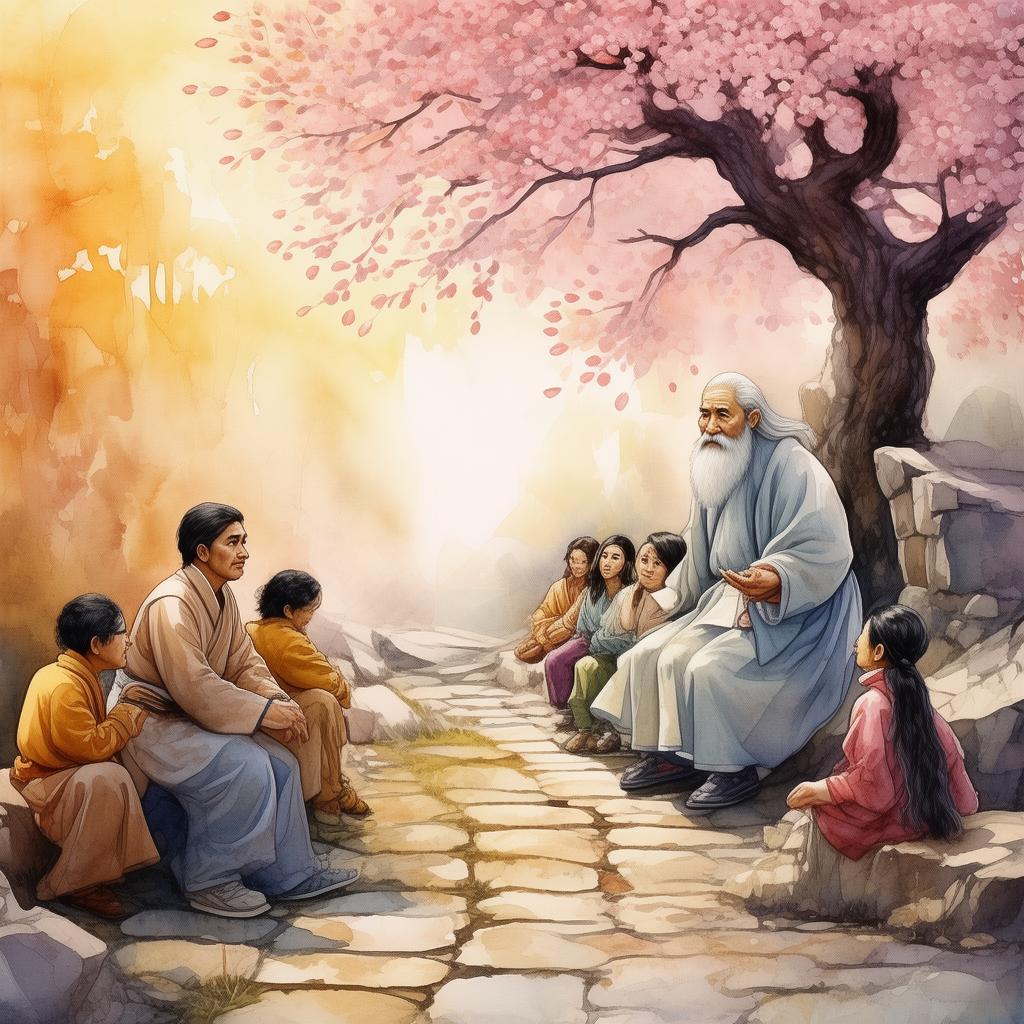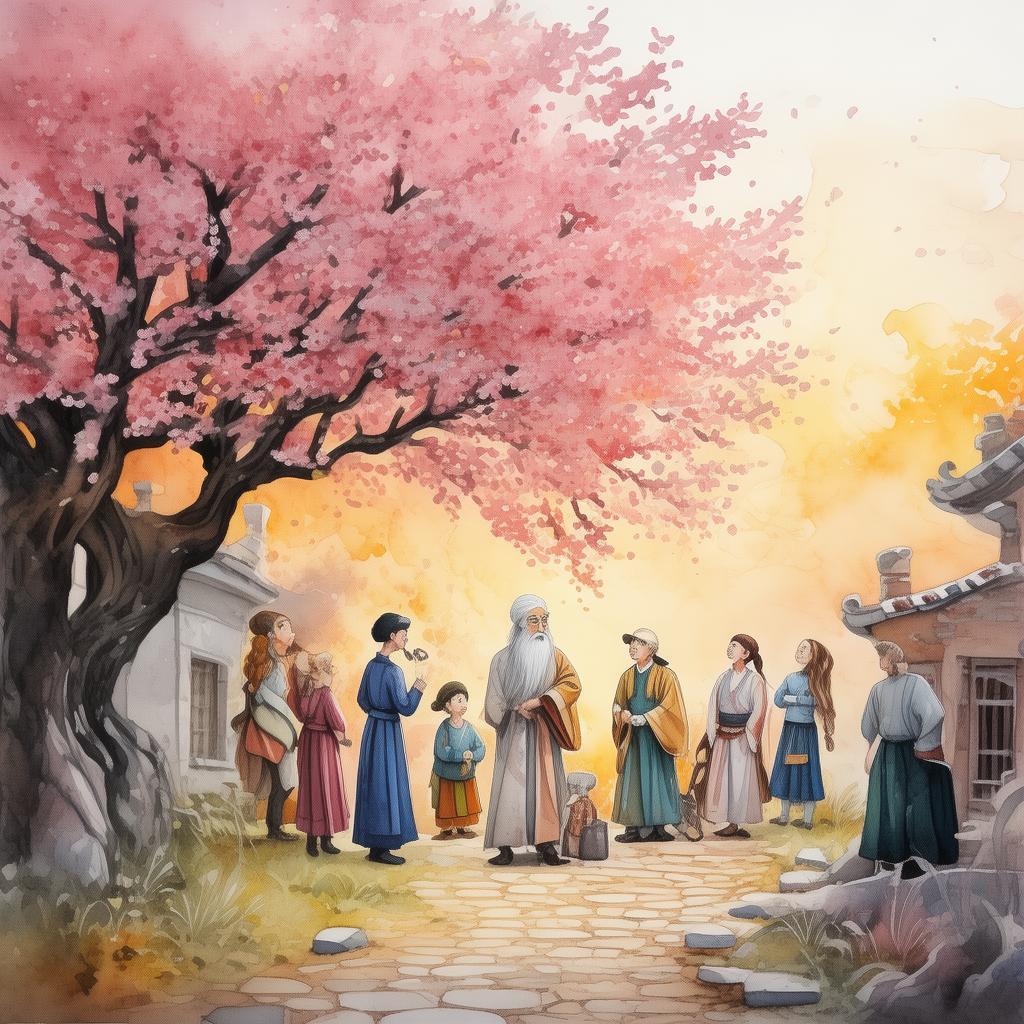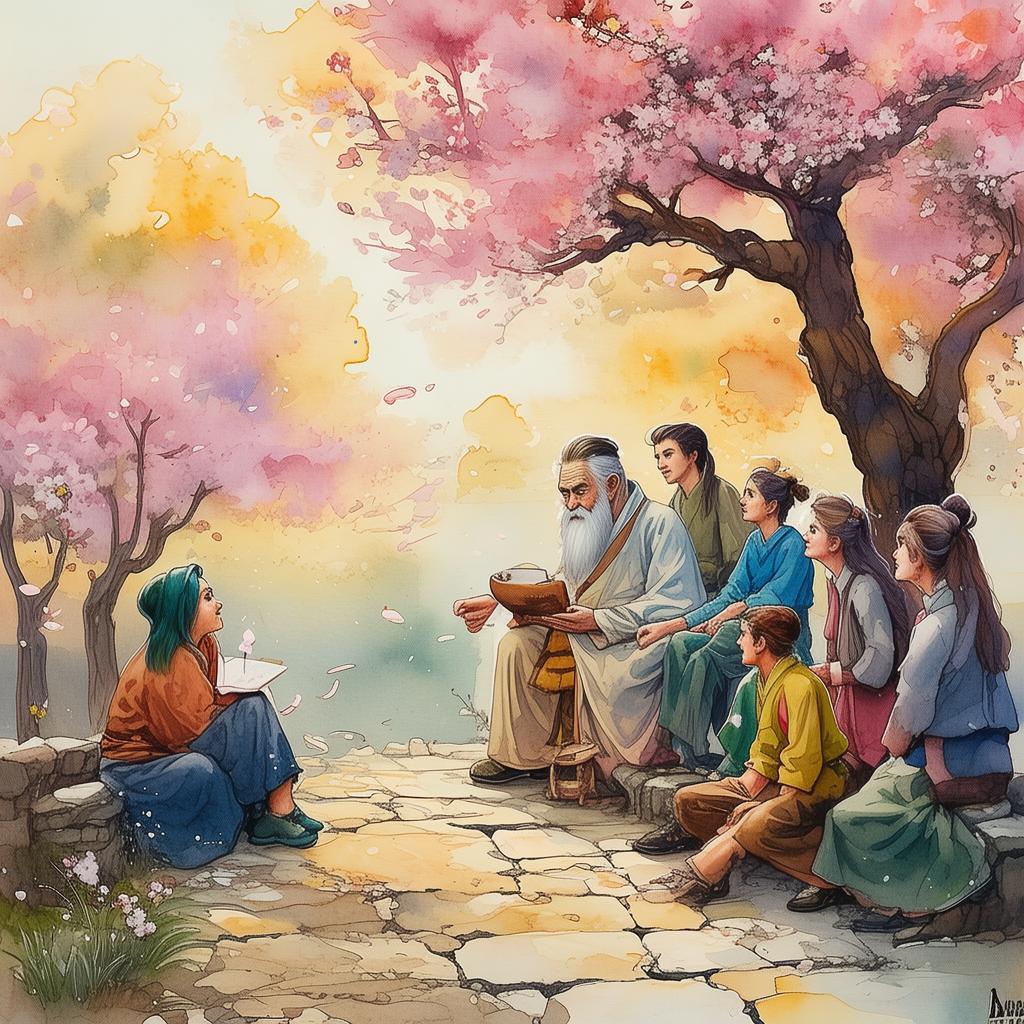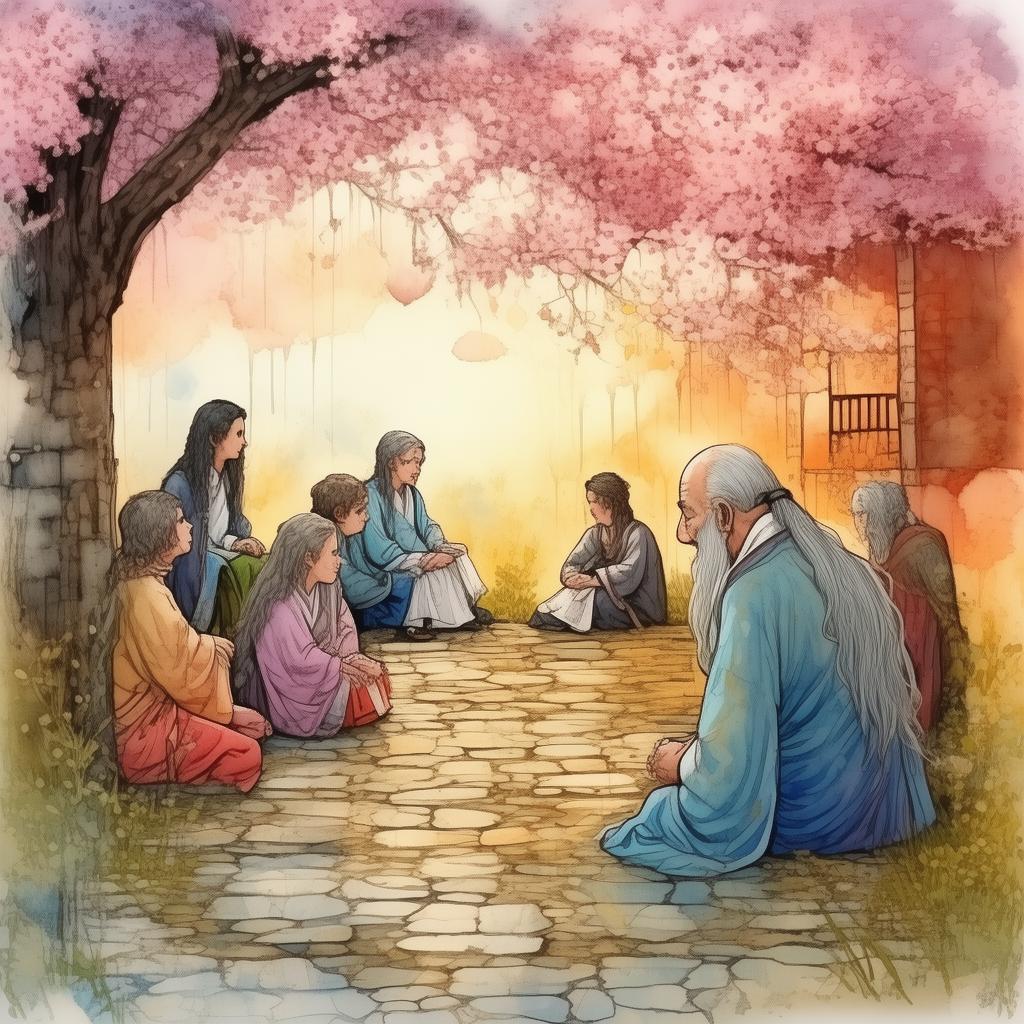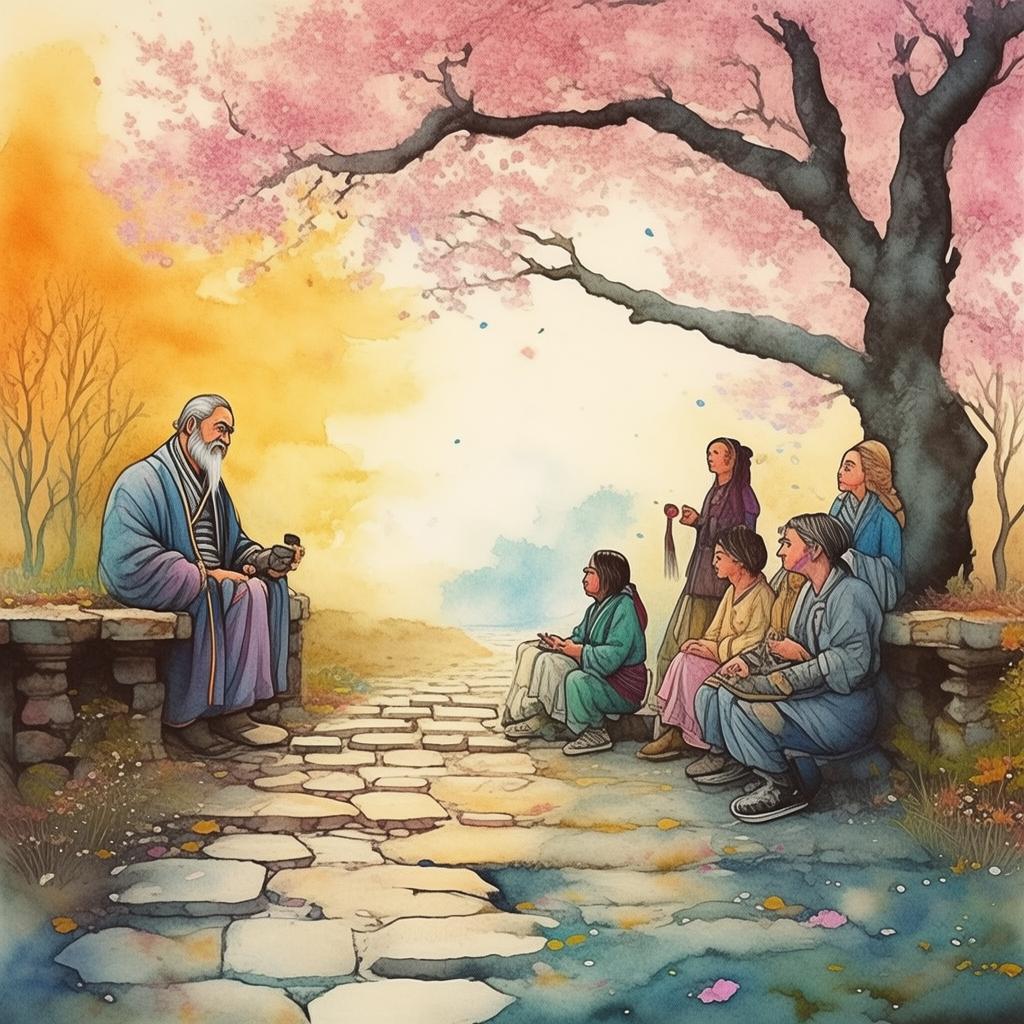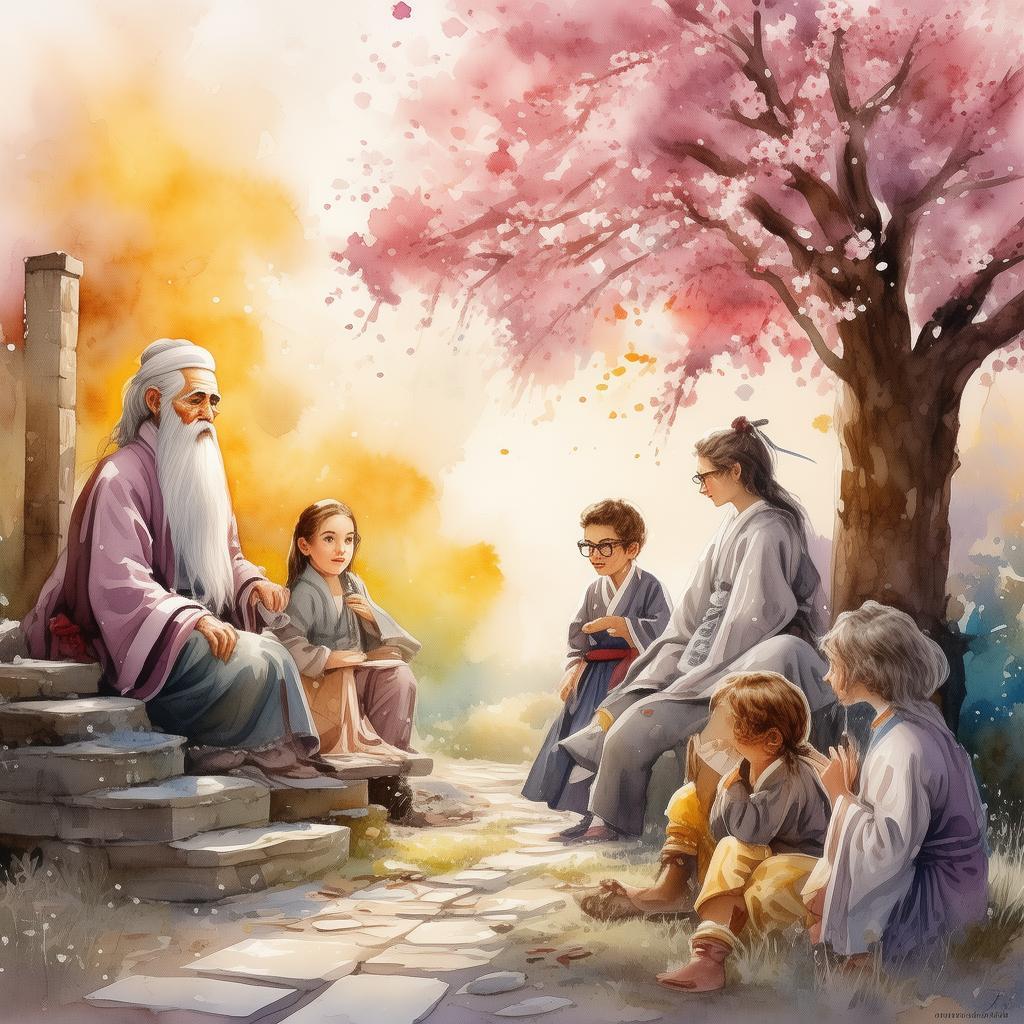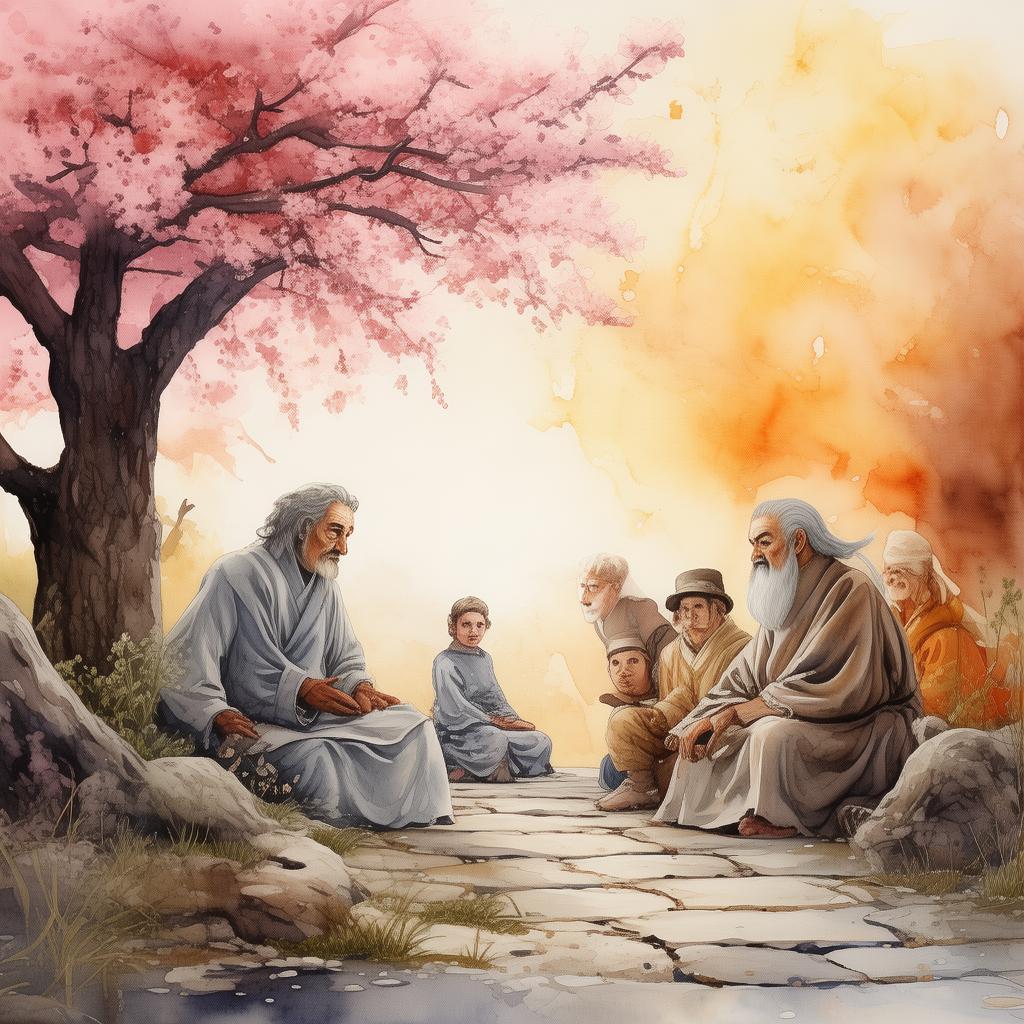Time's Echo: The Quest for the Eternal Clock
In the heart of an ancient library, shrouded in the whispers of forgotten knowledge, a young scholar named Li Hua stumbled upon a peculiar book bound in leather, its pages yellowed with age. The book, "The Tome of the Time Traveler," lay forgotten, its cover adorned with intricate symbols that seemed to pulse with a hidden power. Intrigued, Li Hua opened the tome and found himself drawn into a world where time itself was a tapestry of threads, each representing a moment in history.
The book spoke of an artifact known as the Eternal Clock, a device said to control the flow of time. According to legend, the clock could alter the very fabric of existence, but it also bore a curse that bound its wielder to an eternal quest. Li Hua was to be that wielder, though he had no idea why he had been chosen.
The first challenge presented itself in the form of a riddle: "The tree without roots stands in the field without a name, yet it bears fruit without leaves. What is it?" Li Hua pondered for days, poring over ancient texts and enlisting the help of the library's most learned sages. It was his mentor, Master Wen, who finally provided the answer: a sundial, which stood without roots and bore fruit in the form of shadows that marked the passage of time.
With the first riddle solved, Li Hua's journey through time began. He was transported to the time of the Han Dynasty, where he witnessed the grandeur of the Great Wall being built. He marveled at the ingenuity of the engineers, their sweat and toil forming the foundation of the world's longest wall. It was here that he encountered his first glimpse of the Eternal Clock, a small, ornate box set upon a pedestal in a temple.
As Li Hua reached out to touch the clock, a voice echoed in his mind, "You seek to alter time, but do you understand the consequences?" Li Hua, feeling the weight of destiny on his shoulders, answered with conviction, "I seek to learn, to understand, and to protect those I care about."
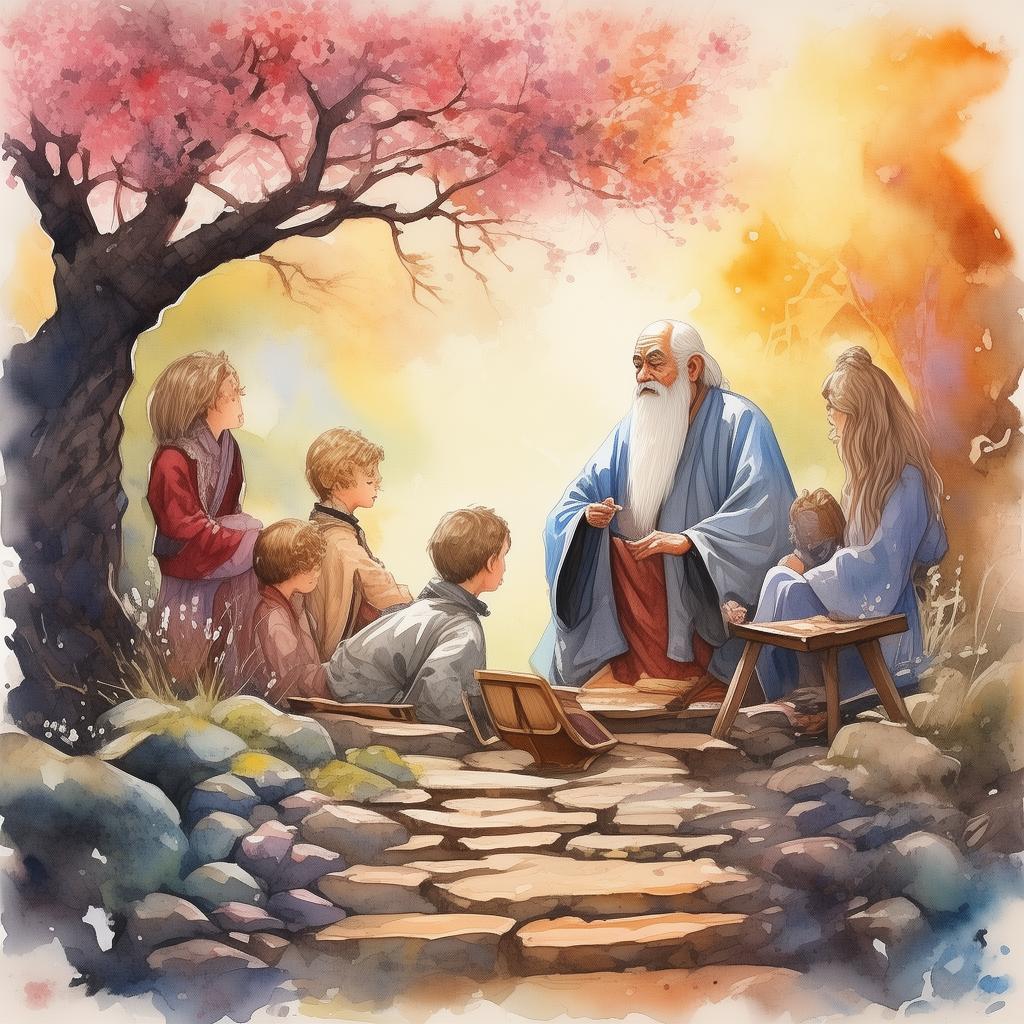
The next riddle awaited him in the Renaissance period, where he encountered a brilliant artist painting the ceiling of the Sistine Chapel. "What is it that moves more slowly than time and is yet faster than the wind?" Li Hua asked, knowing that the answer must be something that stands still yet represents change. The artist, Michelangelo, replied, "Thoughts, my young friend. They are ever-present and ever-changing."
Li Hua's next stop was the American Wild West, where he came face to face with a notorious outlaw named Jed. Jed challenged him to a duel, but instead of fighting, Li Hua asked him the riddle: "What has keys but can't open locks?" Jed, pondering for a moment, answered, "A piano." Li Hua nodded, understanding that it was the keys of the piano that could unlock the music, much like the keys to understanding time.
Each era offered a new riddle, each one testing Li Hua's wits and spirit. He visited ancient Egypt, where he deciphered the riddle of the Rosetta Stone; he traveled to the futuristic city of Neo-Tokyo, where he solved a riddle about a robot's heart; and he even returned to the library to confront the riddle of the book's own origin, which led him to the realization that the Tome of the Time Traveler was, in fact, his own soul.
In the end, Li Hua found himself in the present, back in the library. The riddle of the Eternal Clock was clear now: it was a mirror to his own existence, reflecting his journey through time. The clock itself was a symbol of the wisdom he had gained, the experiences he had lived, and the growth he had undergone.
With the last riddle solved, the clock's power activated, and Li Hua was offered the choice to wield its power or to return to his own time. He chose to return, knowing that the knowledge and wisdom he had acquired were the true treasures of his journey.
As Li Hua closed the Tome of the Time Traveler, the library around him seemed to come alive with the echoes of his journey. He realized that time was not just a linear path, but a series of moments that shaped him into the person he was now. The Eternal Clock was not a device to control time, but a testament to the enduring power of wisdom, experience, and the human spirit.
With a newfound sense of purpose, Li Hua left the library, ready to face the future with the lessons of the past. The journey was over, but the echoes of time continued to resonate within him, a reminder of the endless possibilities that lay just beyond the next moment.
✨ Original Statement ✨
All articles published on this website (including but not limited to text, images, videos, and other content) are original or authorized for reposting and are protected by relevant laws. Without the explicit written permission of this website, no individual or organization may copy, modify, repost, or use the content for commercial purposes.
If you need to quote or cooperate, please contact this site for authorization. We reserve the right to pursue legal responsibility for any unauthorized use.
Hereby declared.
